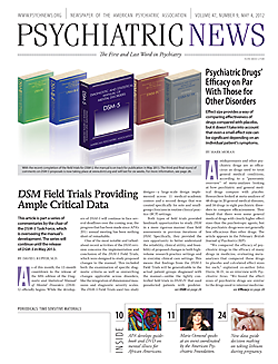Pregnant women with substance abuse disorders should not be charged with endangering the lives of their unborn children.
So contend APA and 43 cosigning organizations and individuals in amicus briefs submitted to the Alabama Supreme Court in two related cases challenging the scope of the state’s Chemical Endangerment Law. The cosigners include national and state-based health care providers, drug-policy organizations, human-rights organizations, experts in addiction and their associations, and advocates for pregnant women.
At issue in both cases is the Alabama Court of Criminal Appeals’ decision to expand the 2006 law to permit prosecution and punishment of Alabama mothers who continued their pregnancies to term despite a drug problem.
According to the Drug Policy Alliance, which is serving as co-counsel for appellants Hope Elisabeth Ankrom and Amanda Helaine Kimbrough, the law was initially passed to deter people from bringing children to places where controlled substances are manufactured, such as methamphetamine laboratories. Ankrom and Kimbrough are also being represented by attorneys for the National Advocates for Pregnant Women and the Southern Poverty Law Center.
“The statute makes no mention of pregnancy, pregnant women, or unborn children,” said the Drug Policy Alliance in a statement accompanying the March 13 release of the two amicus briefs, noting that the state has arrested and prosecuted more than 60 Alabama mothers under its interpretation of the law.
APA and the other cosigners argue that the lower court’s decision endangers maternal, fetal, and child health by deterring drug-dependent women from seeking health care, carrying their pregnancies to term, and sharing vital health information with their physicians. Pregnant women who lawfully take prescribed controlled substances would also be subject to arrest under the lower court’s interpretation, as would their prescribing physicians, the signatories note.
Additionally, the amici contend that the Court of Criminal Appeals’ decision is neither supported nor justified by scientific research, which “makes clear that illegal drugs cannot be singled out from innumerable other actions, inactions, and exposures that pose potential risks to a fetus or to a child once born.”
The brief cosigners further suggest that the court’s interpretation of the law reflects a misunderstanding of the nature of addiction, which “has biological and genetic dimensions and cannot often be overcome without treatment.”
Allowing the appeals court’s decision to stand would also make Alabama an outlier both internationally and among other U.S. states, the majority of which have refused to expand their criminal laws to encompass women in relation to the fetuses they carry, the brief points out.
“The Alabama cases reflect attempts to punish women for drug use during pregnancy, rather than to provide treatment that would protect them and their fetuses,” Paul Appelbaum, M.D., the Dollard Professor of Psychiatry, Medicine, and Law at Columbia University, chair of the APA Committee on Judicial Action, and a past APA president, told
Psychiatric News. “Our involvement as amicus curiae is based on APA’s long-standing opposition to prosecution of pregnant women for drug use and strong advocacy for this problem being approached from a therapeutic perspective. Most courts in the past have agreed, and we are hopeful that Alabama’s Supreme Court will follow the majority of states in rejecting this counterproductive response to a psychosocial problem that requires treatment-oriented solutions.”

